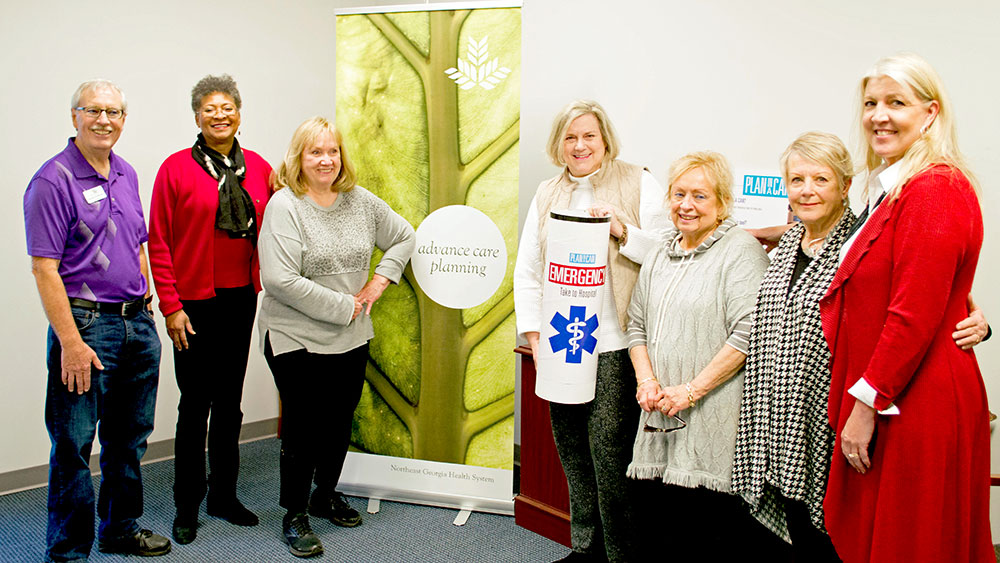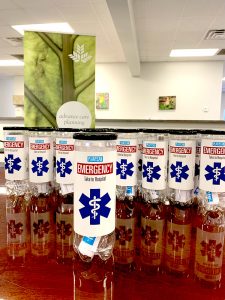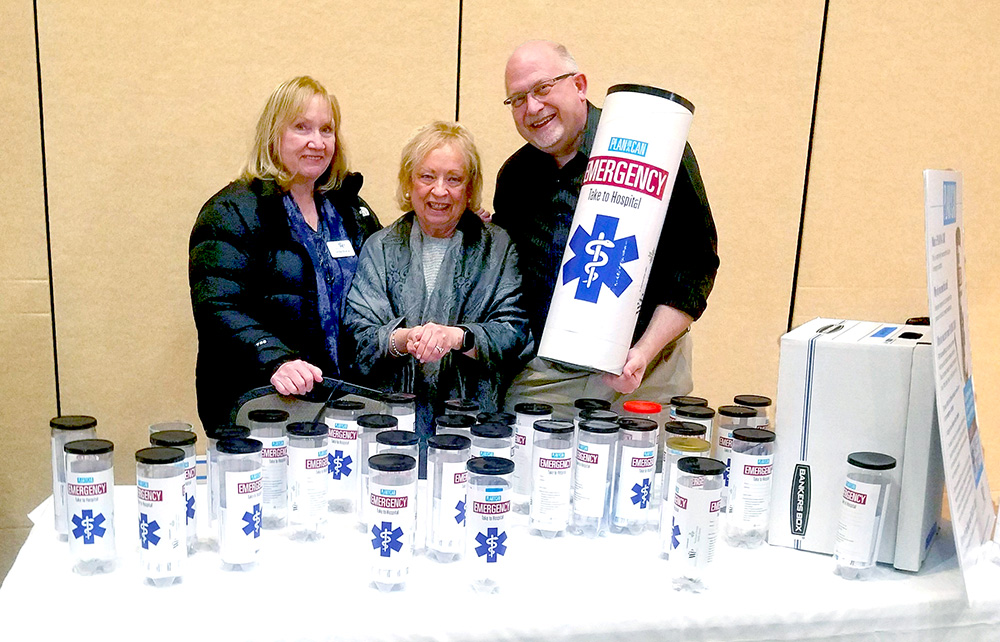A Plan in a Can is a simple tool with an outstanding function. It is a recycled tennis can that acts as the housing agent for vital health information and personalized necessities for an unplanned trip to the hospital.
If you have to call 911, what is the most important information EMS needs to know to provide you the best treatment before you get to the hospital? What personal items would you need when you get to the hospital?
Some examples could include:
- Your Advance Directive
- medications list
- glasses
- hearing aids
- eye drops
- phone charger
- etc.?

L-R: Duane Schlereth, Phyllis Solgere, Linda Stacy, Candace Hart, Sue Paris, and Beverly Nordholz, with Libby Dunahoo from NGHS
The Plan in a Can lets you personalize your health information and other important information and items you may need if you had to go to the hospital in the case of an emergency. Putting together a Plan in a Can and placing it on top of your refrigerator for EMS to easily find gives you a sense of peace.
Request a Plan in a Can
Complete the form on this page and we will reach out to you to determine the number of cans needed and the mode of delivery.
“Every person who prepares is one less person who panics in a crisis”
Mike Adamson
British Red Cross

Background
The Plan in a Can initiative at NGHS was introduced by Dr. James Kruer. Having seen the success from this project by Michelle Moccia at St. Mary Mercy in Lavonia, Michigan, he suggested implementing it here in tandem with the Advance Care Planning program. In 2018 this project was presented to Wisdom Project 2030 and a group of the Wisdom Keepers took this on as a community project for NGHS in 2019.

Starting with Michelle’s template, this team poured countless hours of work and time into creating a label for the cans, creating a medical form for use by EMS to quickly ascertain vital information, and setting up a community recycling effort to collect cans. They did amazing work in creating a foundation for success. They also provided outreach opportunities for the Advance Care Planning (ACP) department to provide ACP and Plan in a Cans to the community. Then, in January of 2020 the Wisdom Keeper team officially passed the program to the ACP Department for sustainability.

